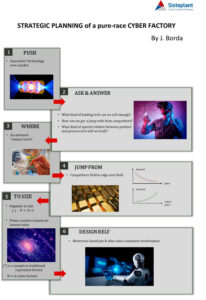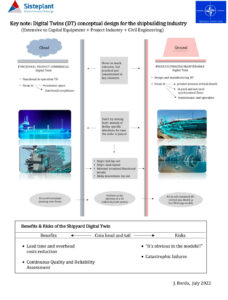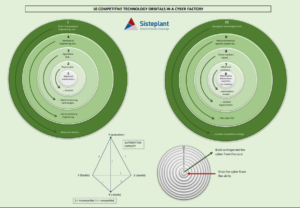Author:
Javier Borda Elejabarrieta, Prof. Dr. Ing., President of Sisteplant
Usually, pharma industries consist of two well differentiated areas: batch processing of formulae, and high-speed dedicated fill-packaging lines. Behind this layout is the assumption of mass production for standardized medical treatments and personal care.
Far from setting up dates, certainly the mass delivery will be replaced by a much more customized one, then the former model for manufacturing will become suddenly obsolete.
Upsetting a long high-speed packaging line for multi-product multi-can flow would lead to:
- “Push” flexibility into unsettled process by any way
- Dramatically reduce velocity, otherwise risking quality and very frequent stoppages
- Significant investment trying to compound something simply yet obsolete for
- Very poor ROI
Instead, bet for short, group-tech dedicated, moderated velocity lines with extreme flexibility allowing for very short runs.
This leads to a parallel flow versatile service, and:
- Investment in “future value” from the ground
- Simpler lines than can be automated with traditional robots and “humanoids” given that they’re not very rapid
- Stepping flexible automation made natural
- Easy gain of 2-3 sigma’s, from a current value of other 2-3. That is reducing detects to virtually zero.
Normally, automation losses reliability when it’s applied to electro-mechanical systems that are yet inadequated to required operation from its base, which consists in:
- A flexibility in terms of product range and set-up time
- A quality in terms of K·σs and tolerances
- A velocity in terms of cans/sec
The more you depart from the base, exponential loss of reliability will appear.
(Please, continue deeping this note with a next paper called “The new TPM”).
Why is all that important for 4.0 and beyond? Simply because:
- It’s untangled from basical misconceptions, and people deeps in technological roots of the process, increasing knowledge and motivation instead of frustration and the culture of “firemen”.
- ICT’s intelligent tools (such as Promind®) are neatly oriented to not only improve the “OK the first time”, but “much better each time” instead.





